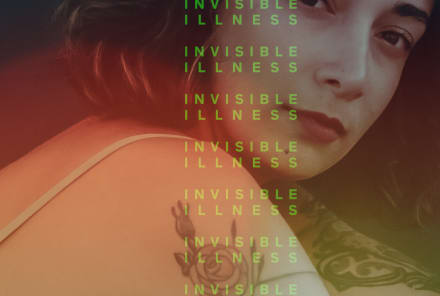Advertisement
8 Signs Of An Unhealthy Friendship & When To End Things

Most people are familiar with the statistic that 40 to 50% of marriages end in divorce. Even though that's a huge percentage, we tend to accept it because we all understand that making a marriage last can be hard work. But how often have you thought about friendships that end in "divorce"?
Friendships are vital to our holistic well-being: Friendships can help you recover more quickly from illness, lower your risk for heart disease, alleviate depression, and even help you sleep more soundly. So when meaningful, long-term platonic relationships end, it can be as painful as a divorce—even though many people don't think about a friend breakup the same way.
It can feel very difficult and even painful to leave a friendship, but there can be a point when a friendship is no longer beneficial to you and could even be harmful. Here are a few signs of an unhealthy friendship that suggest it might be time to break up:
They expect you to be there for them 24/7, no matter what.
Did you know women have higher expectations1 of their friends than men do? While it's not a problem to have high expectations for your friendship, it becomes a problem when your friend constantly requires you to drop what you're doing whenever they want to talk to you. If you're in this type of friendship, where you're expected to be "on-call" whenever your friend needs you, pay attention to how that makes you feel. My guess? Probably pretty crappy because this is a sign of a one-sided relationship. When this happens, your friend is devaluing you by assuming their needs are more important than yours (and expecting you to behave as though you agree).
They take jabs at you in front of other people but claim it's all in good fun.
Have you ever had a friend "jokingly" talk with others about something you're self-conscious about or share something you've told them in confidence? If you confront them about it, do they laugh it off and say something like "You're too sensitive" or "It was just a joke?" If so, this is a sign that your friend doesn't respect your feelings. Anything you've told them about in confidence should be kept that way—between the two of you only. After all, if your best friend can't keep your secrets or thinks it's worth it to share them just to get a laugh from others, do they really care about you?
They expect you to read their mind—and get upset when you can't.
While it's true that you can sometimes get to know your best friends so well that you can practically read their minds, it should never be an expectation that you always know what they're feeling, thinking, or wanting. Communication in your friendships is just as important as it is in romantic relationships or marriages. Without clear, honest communication from both parties, friendship can't be expected to thrive. Talking about what you're feeling, what your hopes and aspirations are, and even talking about your expectations for the friendship are all signs of a healthy relationship. By sharing in this way, both friends express vulnerability and demonstrate they trust each other, which helps any relationship grow stronger.
They make all the decisions in your friendship.
Do you both decide what movie to watch, what type of food to eat when you go out for dinner, or where to go on your next girls' trip? Or does your friend make most of those decisions? A good way to identify if this is a problem in your friendship is to imagine how you'd feel if someone you care about told you this was happening in their marriage or romantic relationship. If their spouse or partner wouldn't let them decide anything for themselves or even make mutual decisions, I bet you'd warn them that they were in a controlling relationship! The same goes for your platonic friendships. Just like in a relationship, a friendship is meant to be an equal partnership with each person's input valued and taken seriously by the other.
They lie to you.
This one is pretty self-explanatory, but it's worth noting, especially if it's a pattern. Although it can be hard to know for sure when some people are lying, there are some body language cues that might give them away. The most reliable lie detector, though, is your gut: You know your friend, and you know how you've felt when you've been lied to in the past. Trusting your mind-body connection when you feel like something's "off" is a great way to know how truthful your friend is being with you. If you have caught your friend in a big lie or lying multiple times, you should ask yourself what reason your friend might have to lie to you. Can you trust them to be honest with you when it really matters? Should you?
They're jealous or possessive of you.
Has your bestie ever given you the cold shoulder or put you down when you accomplish something you're proud of? Have they gotten upset with you or started a fight when you make plans with other people? These are signs of controlling behavior and may be a red flag that you're in an unstable or even abusive relationship. Ideal friendships are those where both friends always want the best for each other. That means celebrating each other's wins and appreciating the fact that you both have rich relationships outside of your friendship with one another.
They abuse you physically, mentally, or emotionally.
Abuse is a way of exerting power and control over another person, plain and simple. Threats, angry outbursts directed at you, blaming you for their problems, monitoring your texts or emails, or trying to turn others against you are all signs of mental and emotional abuse. You should immediately consider your options for leaving the relationship if you're the victim of physical, emotional, or mental abuse. If you don't know how to do so, you should seek help from a licensed therapist, social worker, or through a domestic violence shelter or hotline.
You just don't have things in common anymore.
While this isn't necessarily a sign of an unhealthy friendship, it can still be a cue that it may be time to put some space between your friend and yourself. It can be tempting to hang on to some of your oldest friends because you've known them forever. When you've invested so much in the friendship, you might think you can't, or shouldn't, give it up. But as people grow, their interests and priorities may change, and this can mean you no longer share common interests with your friend. It can hurt when you start finding it hard to maintain a meaningful conversation with a friend who used to mean everything to you.
If this is the case, even though you may no longer feel the same about them as you used to, you can still wish the best for each other and respect and support each other's choices without trying to force yourselves into propping up a wobbly friendship. There's no shame in outgrowing a friendship—it simply means each of you has found a path that works for you, and at this stage in your lives, those paths don't converge. Moving away from best-friend status in a respectful way also keeps the door open for a future relationship if it makes sense to reignite it later on.
Ideally, none of us will ever have to break up with our best friends. But if you do think your friendship is no longer serving you, know that it's OK to take a step back for your own best interests.
Watch Next
Enjoy some of our favorite clips from classes
Enjoy some of our favorite clips from classes
What Is Meditation?
Mindfulness/Spirituality | Light Watkins
Box Breathing
Mindfulness/Spirituality | Gwen Dittmar
What Breathwork Can Address
Mindfulness/Spirituality | Gwen Dittmar
The 8 Limbs of Yoga - What is Asana?
Yoga | Caley Alyssa
Two Standing Postures to Open Up Tight Hips
Yoga | Caley Alyssa
How Plants Can Optimize Athletic Performance
Nutrition | Rich Roll
What to Eat Before a Workout
Nutrition | Rich Roll
How Ayurveda Helps Us Navigate Modern Life
Nutrition | Sahara Rose
Messages About Love & Relationships
Love & Relationships | Esther Perel
Love Languages
Love & Relationships | Esther Perel











